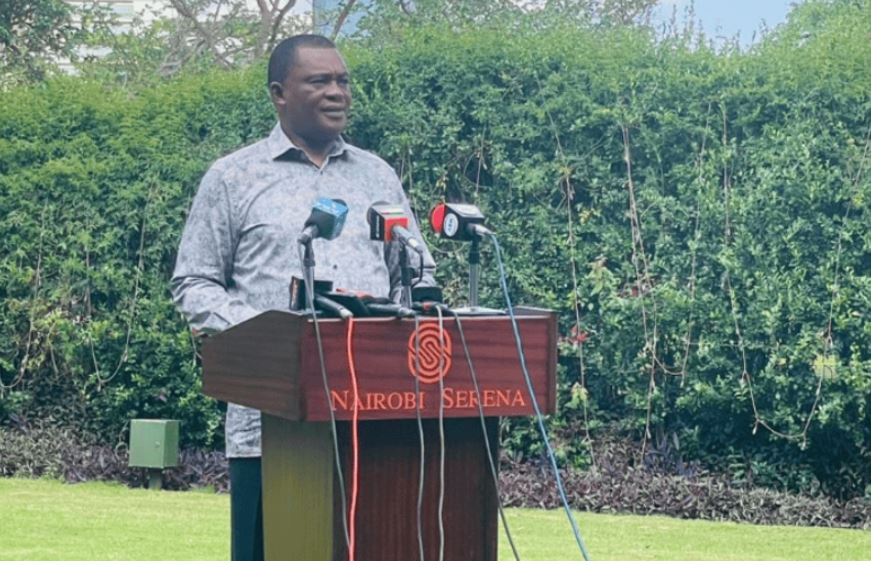 Public Service Cabinet Secretary (CS) Justin Muturi publicly criticized the government he serves, raising alarms about the recent wave of abductions targeting Kenyan youth.
Public Service Cabinet Secretary (CS) Justin Muturi publicly criticized the government he serves, raising alarms about the recent wave of abductions targeting Kenyan youth.
Speaking at a press briefing on Sunday at Serena Hotel in Nairobi, Muturi condemned the government, expressing deep concern over the rise in disappearances and the abduction of his son.
Muturi, who served as Attorney General and was a senior member of the National Security Council, revealed that despite his position and efforts to seek assistance, his son was abducted in June during the peak of the anti-government protests. He said that even with his close connections to senior security officials, he received no answers or support in locating his son, which left him feeling helpless.
“I made attempts at all levels, and to date, more than six months later, I have not received any explanation,” Muturi stated, urging the government to address the growing issue of abductions in the country.
The CS voiced his disappointment with the current administration, implying that President Ruto’s government had failed to uphold the promises made during the campaign, particularly regarding the commitment to prevent abductions and extrajudicial killings. Muturi reminded the public that one of the main accusations leveled against past regimes was their involvement in forced disappearances, a practice that Kenya Kwanza had vowed to eradicate. However, Muturi said that the current regime had failed to deliver on this promise.
“Many of us accused the past regime of carrying out abductions and forced disappearances. Today, these same issues are resurfacing, with the youth being particularly targeted,” he lamented. “My son was personally abducted, making us anxious, and at the time, I was the Attorney General of Kenya and a member of the National Security Council,” Muturi added.
The Cabinet Secretary further revealed that his decision to join Ruto’s government was influenced by personal beliefs in the coalition’s principles. He had hoped that the Kenya Kwanza administration would prioritize the welfare of Kenyans and reject the wrongful practices of previous governments. However, he expressed regret over his association with the ruling coalition.
“Many friends and political colleagues warned me against joining the coalition, but at a personal level, I was persuaded by the ideals and values they espoused—of being a hustler nation that would work for the best interests of the people of Kenya. We had accused past regimes of being involved in disappearances and extrajudicial killings, and we vowed that we would never condone such actions. Yet, today, we are witnessing a number of abductions, and in some cases, unexplained deaths,” he said.
Despite his prominent role in national security matters, Muturi denied having any direct evidence linking the government or specific individuals to the abductions. “I am unaware of any forces formed to abduct Kenyans, as that would be illegal. The government cannot abduct its own people,” he stated when asked to identify those behind the disappearances.
Muturi also suggested that the current government has failed to live up to the ideals it once presented to the public, claiming that the promises made during the campaign have not materialized. He pointed to the alignment of his Democratic Party of Kenya with the principles of Kenya Kwanza but expressed disappointment in the way the administration has handled key issues affecting the nation.
“I joined the Kenya Kwanza coalition because the principles they espoused aligned with those of the party I belong to, the Democratic Party of Kenya,” Muturi concluded, leaving a strong message of disillusionment with the current leadership.








